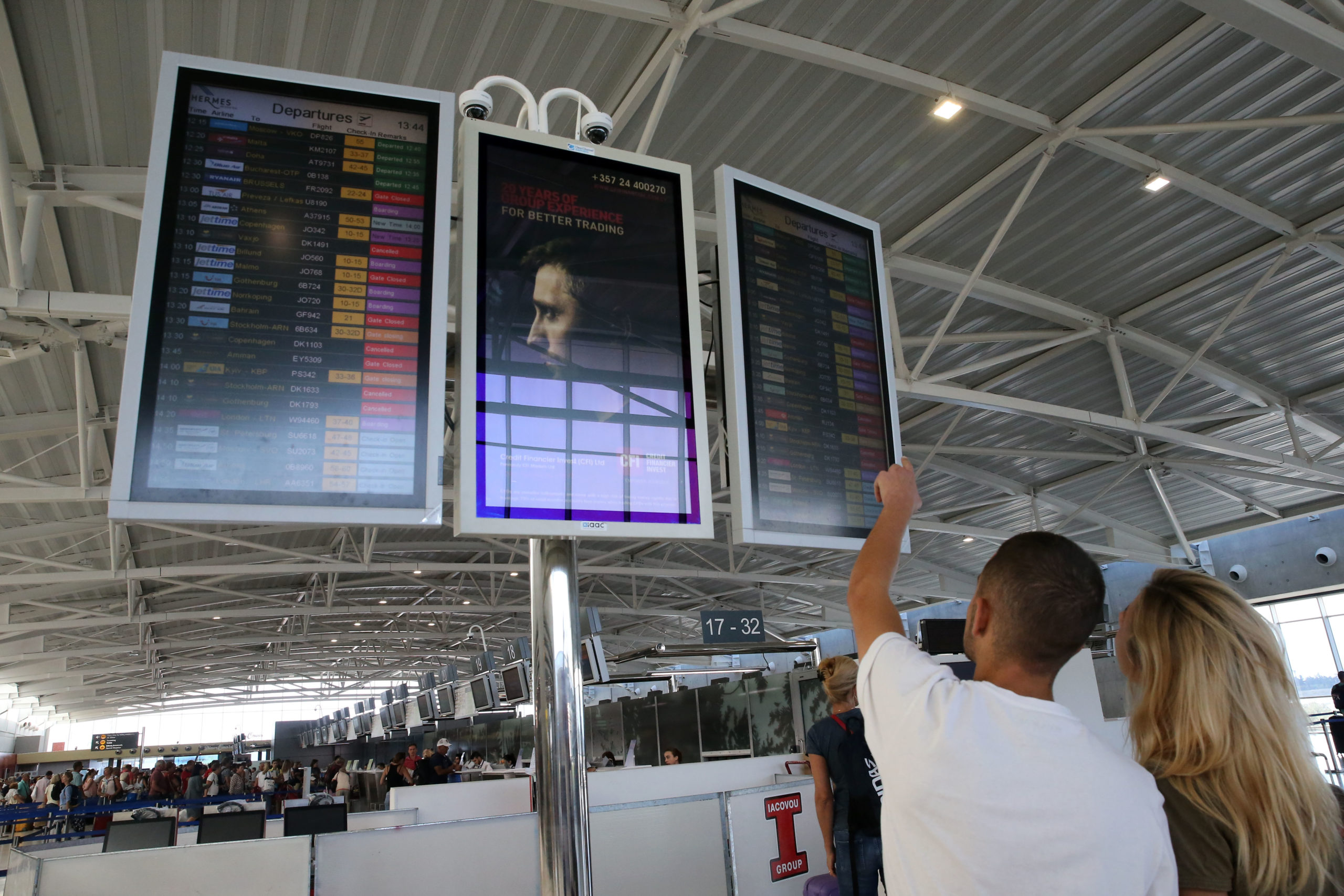Cyprus safest green travel category is shrinking with just 17 countries from which tourists can enter the island without restrictions, following the Delta variant taking a grip.
According to the island’s latest update of its safe travel list, just ten EU member states are left in the safest green category after Sweden and Croatia dropped out, falling to orange.
Serbia was also demoted from green to orange.
Overall, only 17 countries are left in Cyprus’ green category.
Meanwhile, Israel was relegated to red from orange due to the worsening epidemiological data.
Israel’s drop to the red comes just two weeks after it was demoted to orange from Green.
The Israeli government has banned Israelis from visiting Cyprus, one of their favourite holiday destinations.
Israel – the island’s third-largest source of tourists – was joined by Estonia and Lebanon in dropping from Orange to Red.
Cyprus is suffering from the fourth wave of coronavirus, with record infection rates reaching four digits earlier in July, powered by the more contagious Delta variant.
No country has been upgraded when changes come into effect on Thursday, 12 August.
Under the colour-coded system, there is no mandatory quarantine for tourists entering Cyprus from the EU.
Cyprus keeps its doors open to vaccinated tourists, regardless of their country of origin, to boost arrivals that plunged 84.1% last year.
But the UK – the island’s biggest tourist market – is in the red, making it more difficult for Cyprus’ tourism sector.
Although fully vaccinated, UK tourists can enter without restrictions.
Tourists allowed unconditional entry must have a COVID-19 vaccine approved by the European Medicines Agency (EMA), Pfizer/BioNTech, AstraZeneca, Moderna and Janssen.
Russia’s SputnikV and China’s Sinopharm are also accepted vaccines by Cyprus.
Regardless of category, unvaccinated tourists staying for more than a week must get tested on the seventh day of their vacation.
GREEN
Under the COVID assessment scheme, low-risk countries currently classified in the green category are:
European Union: 1) Austria, 2) Bulgaria, 3) Germany, 4) Latvia, 5) Hungary, 6) Poland, 7) Romania, 8) Slovakia, 9) Slovenia, 10) Czech Republic
Schengen Area: 1) Liechtenstein, 2) Norway
Third Countries: 1) Australia, 2) Northern Macedonia, 2) Jordan, 3) Canada, 4) New Zealand, 5) Singapore
ORANGE
Orange countries are those of higher risk than green.
Passengers must have undergone a PCR laboratory test within 72 hours before departure and have a certificate proving they tested negative for the virus.
European Union: 1) Belgium, 2) Greece, 3) Italy, 4) Croatia, 5) Lithuania, 6) Luxembourg, 7) Sweden, 8) Finland
Small States: 1) Vatican City
Third Countries: 1) Bosnia and Herzegovina, 2) Qatar, 3) China (including Hong Kong, Macau, and Taiwan), 4) Bahrain, 5) Saudi Arabia, 6) Serbia
RED
This category includes countries of higher risk than orange.
Passengers coming from red category countries are required: a) to prove a negative PCR test carried out under 72 hours before departure, and b) undergo another PCR test upon arrival in Cyprus. The cost of the test is charged to the individual.
European Union: 1) France, 2) Denmark, 3) Estonia, 4) Ireland, 5) Spain, 6) Malta, 7) Netherlands, 8) Portugal
Small states: 1) Andorra, 2) Monaco, 3) San Marino
Schengen Area: 1) Switzerland, 2) Iceland
Third Countries: Azerbaijan, Egypt, Albania, Armenia, Georgia, United Arab Emirates, United States of America, United Kingdom, Japan, Israel, Kuwait, Belarus, Lebanon, Montenegro, Moldova, Ukraine, Russia, Brunei and South Korea
GREY
Arrivals are allowed entry after acquiring special permission, only if they are Cypriot citizens or entitled to enter, such as people with a work permit.
Passengers must undergo a coronavirus test under 72 hours before their trip and have a certificate they tested negative for Covid-19.
Grey category passengers must remain in self-isolation for 14 days or seven if they choose to carry out another coronavirus PCR test with a negative result on the seventh day.










